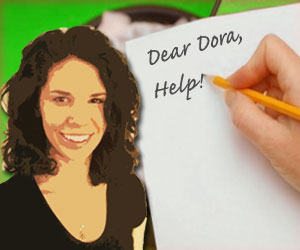Debriefing the Lab After a Scientific Conference
by
I will soon attend a TEM science workshop, and all the members of my lab are really impatient to have a perfect transmission of all the knowledge I can obtain in this workshop. I’m wondering if some users know some interesting tips or tricks to get the most out of this science workshop.
– Denis
.
Dear Denis,
That is a great question. I just came back from a scientific workshop too and I am expected to present what I learned to my group. I am not aware of any recording devices specifically for workshops, but if they let you record the slides with the speaker’s voice in the background it could be a great way to capture the information. Recording might not be feasible if it is not allowed, or if the workshop is structured in a way that makes recording difficult.
Some workshops will provide the slides electronically, which make it easy to bring back the knowledge to your group. If not, you can talk with the speaker and ask whether he/she could provide you with any slides. If there is a poster session, they usually have envelopes next to the posters where you can drop off a business card so they can email you the poster as a PDF (it is actually a great idea to have a business card as a graduate student, because it makes you look professional. Remember, all workshops/workshops are networking opportunities for future jobs).
Any material that you can bring back from the workshop that has details about the presentation will be very useful because it is tough to take notes and pay attention at the same time! I normally only take a few notes to remind myself about the major points, and I use the rest of the time to understand the talks. Fortunately, many speakers present research that has already been published, so I recommend reading their papers after the workshop to refresh your memory about the talks. If your university does not have a subscription to the journal, the author will usually send you a reprint especially if they met you in person at the workshop.
Dora Farkas, Ph.D. is the author “The Smart Way to Your Ph.D.:200 Secrets from 100 Graduates,” and the founder of PhDNet, an online community for graduate students and PhDs. You will find links to her book, monthly newsletters, and discussion board on her site. Send your questions to [email protected] and keep an eye out for them in an upcoming issue!
.
Stay tuned for the next Dear Dora in two weeks! In the meantime, check a few of Dora’s recent posts:
- Music in the Lab: MyTunes, iTunes, or No Tunes?
- Cell Culture Derailing Your Vacation Plans?
- Is a Publication Gap on Our CV a Job Killer?
- How to Leave a Postdoc Quickly with Your Reputation Intact
- How to Establish and Enforce the Chain of Command in Lab
- Walking the Thin Line Between a Great Result and a Lie
- Dear Boss: I Want to Graduate. Let’s Talk.
- My Boss’ Spouse: A Spy or Civilian in Lab?
- Bullying in the Lab: Are PIs Guilty
- What Came First: The Grad Student or the PI?
- Problems Communicating Science to Family? It’s Not Them, It’s You
Submit your questions to Dora at [email protected], or use the comment box below!
.



Erik
wrote on July 10, 2012 at 3:26 pm
Trying to give everyone the complete conference experience is a waste of time. I usually try to pick 2 or 3 talks that I think would be of most general interest and I take very good notes so I can present them upon my return. A postdoc in my former lab used to ask people to look through the program before he left to see if there were any talks people wanted him to attend, which worked pretty well too.
alan@benchfly
wrote on July 10, 2012 at 3:43 pm
I agree, just pick a few talks and cover them well. Plus, I find when I try to take insanely detailed notes during a talk I don't really have time to think about the content and digest it as much–it's more of a mad scramble to write everything down. Like Dora said, most talks (unfortunately) cover published material, so you can always refer to the paper to fill in any holes in your notes.